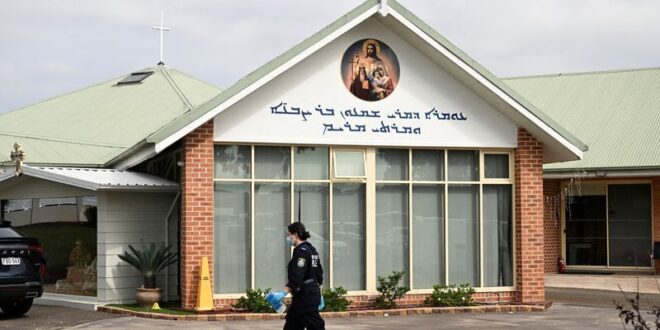SYDNEY (Reuters) – Australia’s cyber safety regulator on Wednesday decided to drop a legal challenge against Elon Musk-owned X over the removal of videos of the stabbing of an Assyrian church bishop in Sydney, after a setback last month in the federal court.
Judge Geoffrey Kennett in May rejected a bid by the eSafety commissioner to extend a temporary order for the social media platform to block videos of the knife attack, which Australian authorities had called a terrorist attack.
Commissioner Julie Inman Grant said in a statement the regulator had decided to drop its legal action against X.
“Most Australians accept this kind of graphic material should not be on broadcast television, which begs an obvious question of why it should be allowed to be distributed freely and accessible online 24/7 to anyone, including children,” Grant said.
She said a major concern was the ease by which children were able to access the violent content on X.
Grant said she originally issued X the notice to remove the video in order to prevent the “extremely violent footage from going viral”, potentially inciting further violence and inflicting more harm on the community.
“I stand by my investigators and the decisions eSafety made,” she said.
A 16-year-old boy has been charged with a terrorism offence for the alleged attack in April.
The legal tussle had sparked heated exchanges between Musk and senior Australian officials including Prime Minister Anthony Albanese, who called Musk “an arrogant billionaire” for his objections to take down the video. Musk has posted memes criticising the regulatory order, describing it as censorship.
Other major platforms such as Meta, TikTok, Reddit and Telegram, took down the video when asked.
X had blocked Australian users from viewing the posts but refused to remove them globally on the grounds that one country’s rules should not control the internet.
But the regulator argued that geo-blocking Australians, the solution X offered, was ineffective because several users used virtual private networks that disguised their locations.
(Reporting by Renju Jose in Sydney; Editing by Michael Perry)
 BeritaKini.biz Berita Viral Terkini di Malaysia
BeritaKini.biz Berita Viral Terkini di Malaysia





